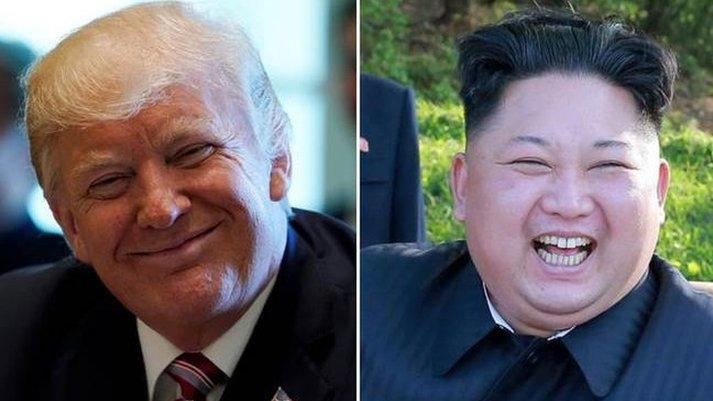Why Trump's reactions to N Korea and Charlottesville are no surprise
- Published
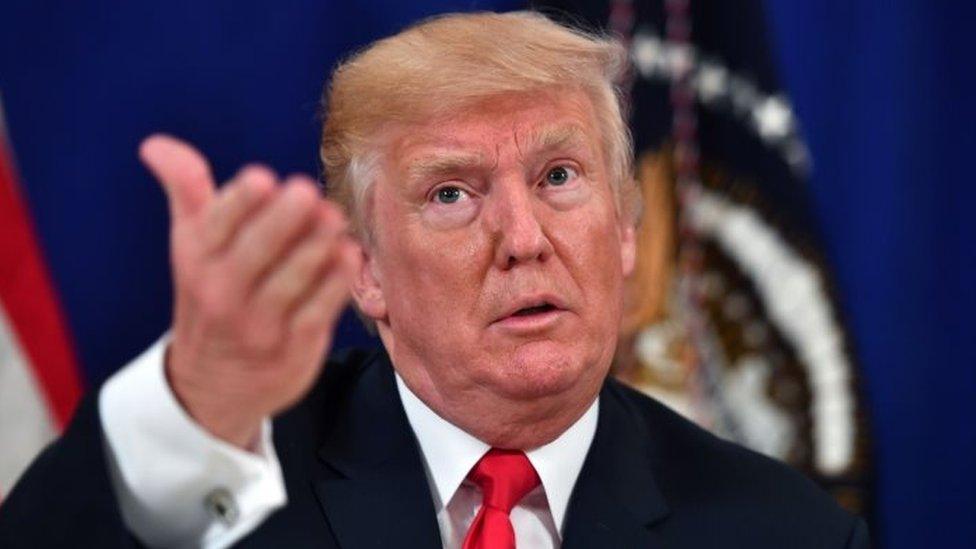
In North Korea and Charlottesville Donald Trump faces the first pivotal tests of his presidency. His responses have been telling but, for those who watched him on the campaign trail, they shouldn't be surprising.
For the first six-plus months as president, the challenges Mr Trump has confronted have been largely of his own making.
The aides with whom he has chosen to surround himself have bickered and leaked to the press. The rollout of key policy proposals - the immigration ban and prohibition of transgender individuals serving in the military, for instance - were often haphazard. The struggles to pass key pieces of his agenda through Congress, particularly healthcare reform, were the result of poor management of a disparate group of Republican legislators.
Such trials and travails can be difficult to handle but are predictable obstacles for most administrations. They are not the challenges that define a presidency.
A presidency is defined by how the person in the Oval Office handles external adversity. Unpredictable crises are the crucible in which a presidential legacy is forged.
Mr Trump has faced two such challenges in the last week - one foreign and one domestic.
'Fire and fury'
When North Korea tested an intercontinental ballistic missile, with reports that their nation had successfully miniaturised a nuclear warhead, Mr Trump responded with a rhetorical fusillade that represented a marked departure from the measured words of his predecessors.
Kim Jong-un faced "fire and fury like the world has never seen". The US military was "locked and loaded", and prepared to strike against North Korea if necessary.
President Trump threatened a response 'like the world has never seen'
Mr Trump's comments prompted criticism from across the political spectrum.
"I take exception to the president's comments because you've got to be sure that you can do what you say you're going to do," Senator John McCain, the 2008 Republican presidential nominee, said. "The great leaders I've seen don't threaten unless they're ready to act and I'm not sure President Trump is ready to act."
Democratic Senate minority leader Chuck Schumer of New York called the comments "reckless", reminiscent of the type of attacks on Mr Trump that were prevalent during his presidential campaign.
"His is not the temperament of a stable, thoughtful leader," 2012 Republican presidential nominee Mitt Romney said in a speech in March last year, external urging his fellow Republicans to resist Mr Trump's quest for the presidency.
Three months later, Democrat Hillary Clinton expressed similar sentiment.
"Imagine if he had not just his Twitter account at his disposal when he's angry, but America's entire arsenal," she said. "Do we want him making those calls - someone thin-skinned and quick to anger, who lashes out at the smallest criticism? Do we want his finger anywhere near the button?"
Enough American voters answered that question with an affirmative to put Mr Trump in the White House. During remarks last week in Bedminster, the president reminded the nation that he was elected to do things differently - and that includes how he handles Kim Jong-un.
"He has said things that are horrific," Mr Trump said. "And with me he's not getting away with it. He got away with it for a long time, between him and his family. He's not getting away with it. This is a whole new ball game."
Clues in the campaign
The second test of the Trump presidency came on Saturday, when a white nationalist rally in Charlottesville, Virginia, ended in tragedy as a car sped into a crowd of peaceful counter-protesters.
The president, in tweets and a press statement, declined to directly denounce the sentiment expressed by the demonstrators who chanted anti-minority, anti-Semitic and anti-gay slogans during the event.
"We condemn in the strongest possible terms this egregious display of hatred, bigotry and violence on many sides," he said, adding that the problem has "been going on for a long time in our country. It's not Donald Trump; it's not Barack Obama."
The US president ignored questions over whether his response went far enough
Those comments also prompted outcry from more than the usual critics on the left. Colorado Republican Senator Cory Gardner and Marco Rubio, the Florida senator who challenged Mr Trump for the Republican presidential nomination, were quick to tweet out that the president had not taken a strong enough stand.
"Very important for the nation to hear [the president] describe events in Charlottesville for what they are, a terror attack by white supremacists," Mr Rubio tweeted, external.
"Make America hate again," blared the headline of the conservative Drudge Report, which was an early supporter of Mr Trump's presidential campaign.
Again, however, clues for how the president would react to such a situation as president were scattered across his presidential campaign.
In February 2016 Mr Trump initially declined to disavow support from the Ku Klux Klan and David Duke, the former Klan leader who became a Louisiana Republican politician.
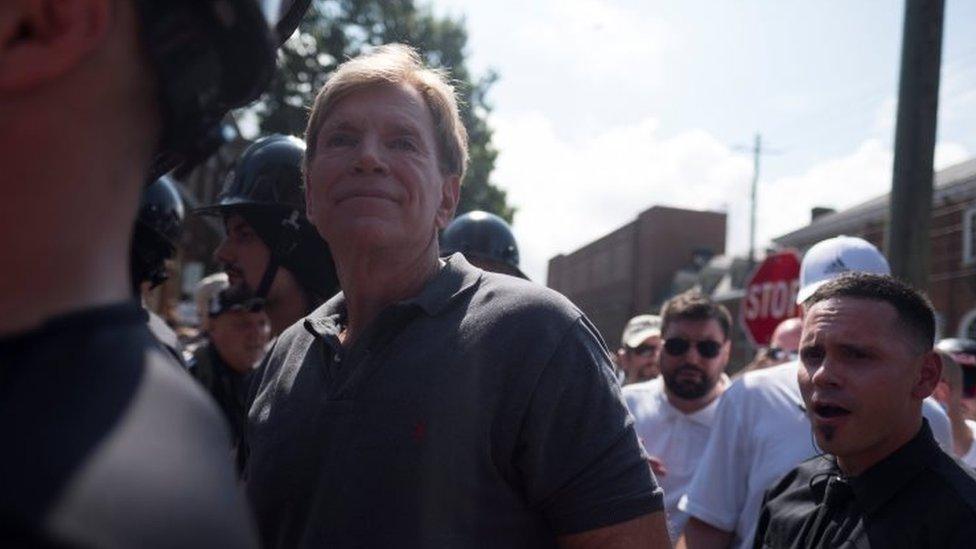
David Duke turned up for Saturday's far-right rally in Charlottesville, which turned violent
"Any candidate who cannot immediately condemn a hate group like the KKK does not represent the Republican Party, and will not unite it," Senator Tim Scott of South Carolina, the first black Republican elected from a Southern state since 1881, said. "If Donald Trump can't take a stand against the KKK, we cannot trust him to stand up for America against Putin, Iran or ISIS."
After a week Mr Trump gave a firm statement denouncing the KKK, but his initial hesitance would be an issue for the remainder of his presidential race.
"Trump is reinforcing harmful stereotypes and offering a dog whistle to his most hateful supporters," Mrs Clinton said in an August 2016 speech, external. "It's a disturbing preview of what kind of president he'd be."
Mr Duke was among the white nationalists in Charlottesville on Saturday, and he continued his praise of the president.
"We are going to fulfil the promises of Donald Trump," he said, external. "That's what we believed in. That's why we voted for Donald Trump, because he said he's going to take our country back."
If, as Mr Trump's critics suggest, his statements following the Charlottesville incident were yet another "dog whistle" to white supremacists, there's evidence that the message was clearly heard.
"Trump comments were good," one poster on the neo-Nazi website The Daily Stormer wrote, external. "He didn't attack us. He just said the nation should come together."
The White House released an unsigned statement on Sunday that "of course" the president condemns the KKK and white supremacists, but at this point perceptions have been largely cemented in place.
On North Korea and Charlottesville the president's actions have largely been telegraphed by his words and actions over the past two years. If some Americans were expecting a different Donald Trump as president than the man who has been in the public eye for decades, this week has been yet another disappointment.
For his supporters, however - the ones who voted for a man who would talk tough on foreign relations and offer an inclusive message, even to more unsavoury elements in American society - the past week may be further confirmation that they made the right choice.
The president has been tested, and his responses are proving to be as divisive as ever.
- Published13 August 2017
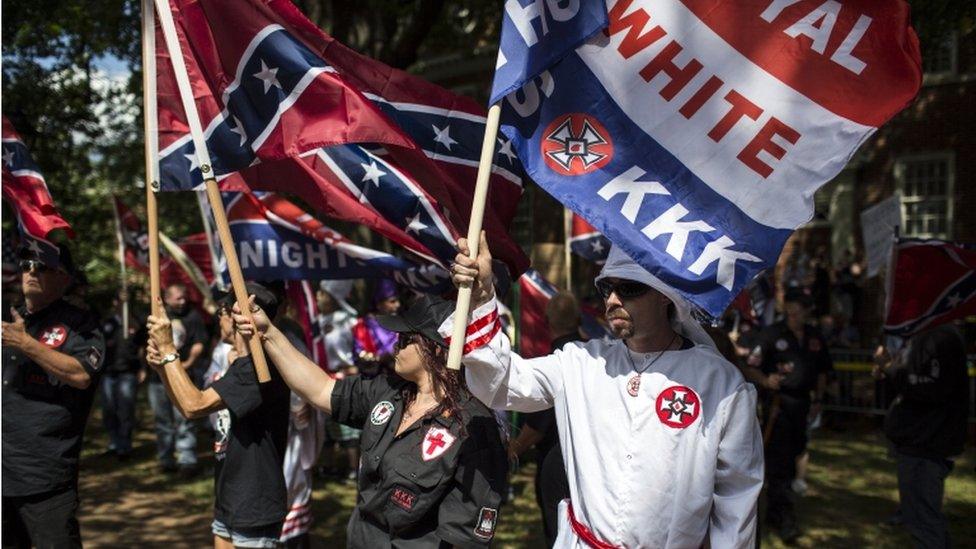
- Published13 August 2017
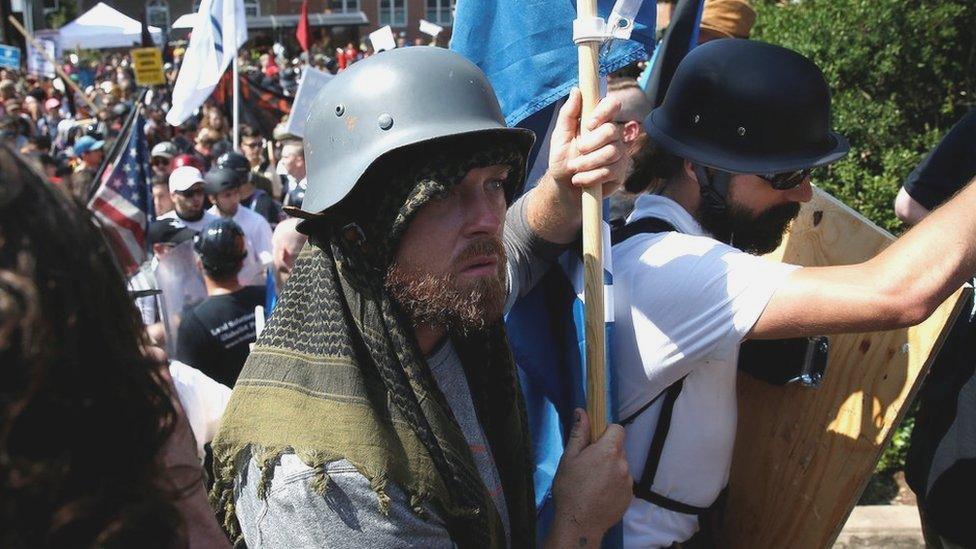
- Published7 November 2016
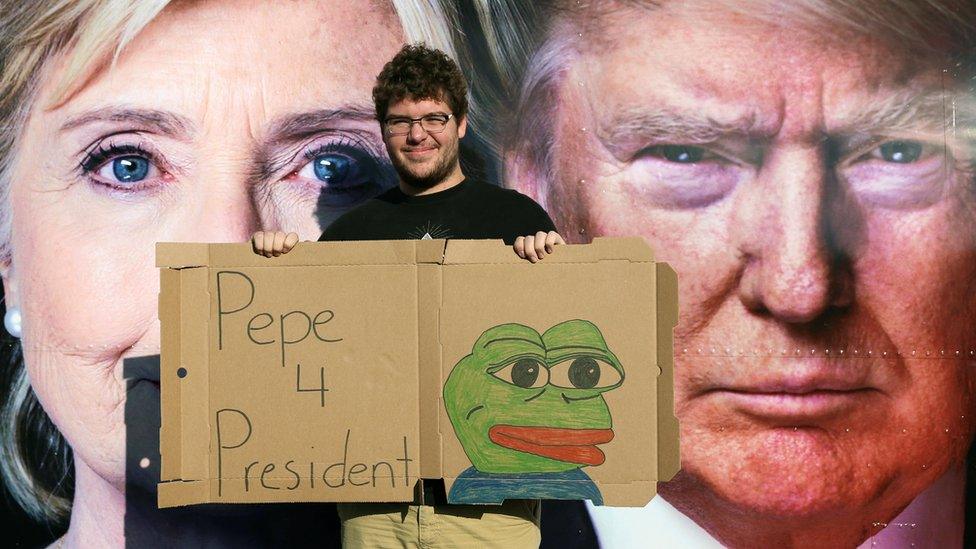
- Published12 August 2017
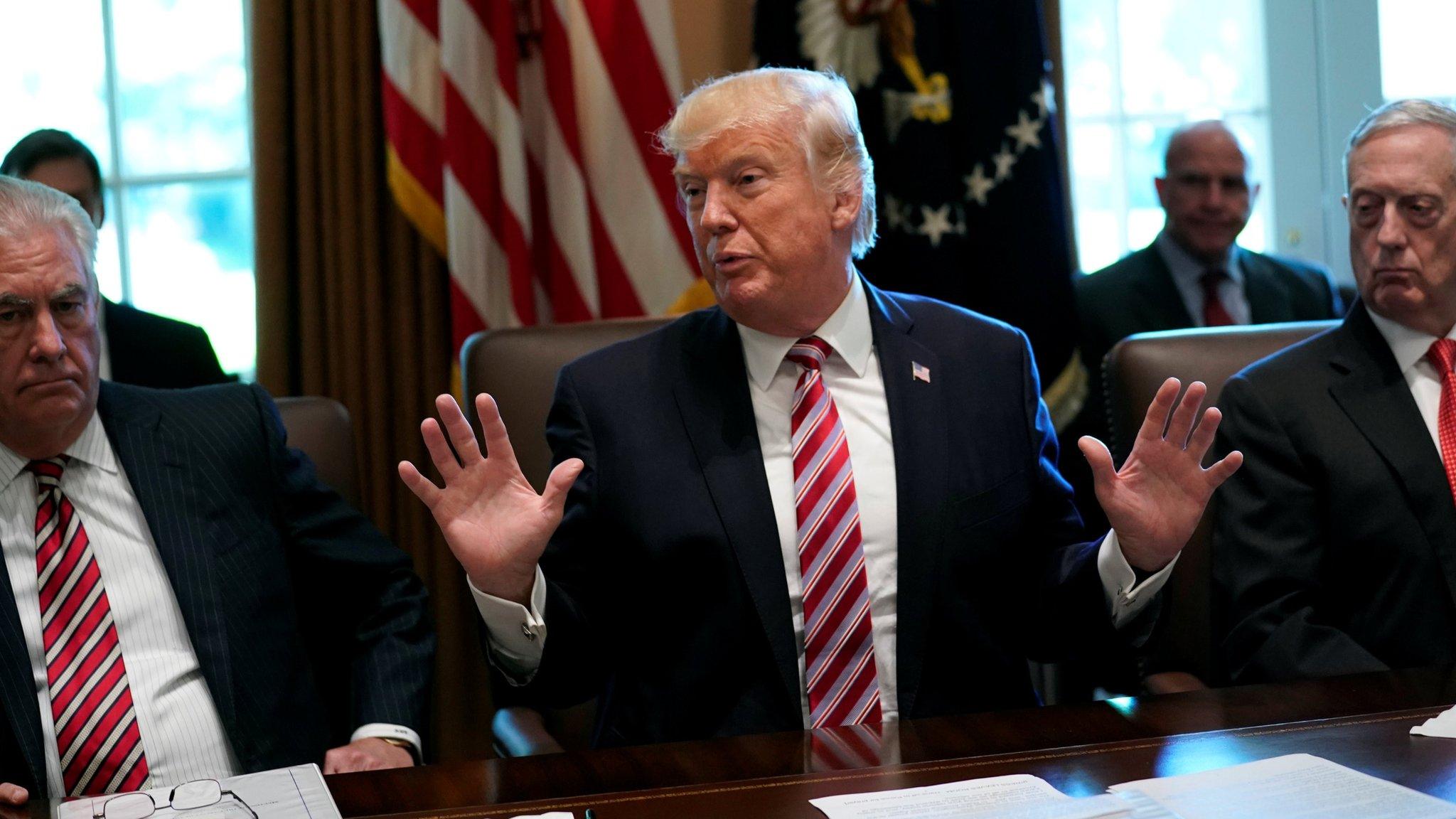
- Published10 August 2017
- Published10 August 2017
